All about the festival "Spring Rhythms. Tbilisi-80"
Содержание
"Spring Rhythms" is the first festival of Russian rock, recorded in musical history in 1980. It was held in the National Philharmonic Hall in Tbilisi, a city that was part of the USSR at the time. This event can be labelled "legendary", because it significantly influenced the development of the underground rock movement at that time. Later on, the festival shaped the fate of dozens of musicians and bands. The most interesting thing is that it became the first rock event in the Soviet Union, the sound of which was given by twenty music groups known today.
Organisation "Spring Rhythms. Tbilisi-80!"
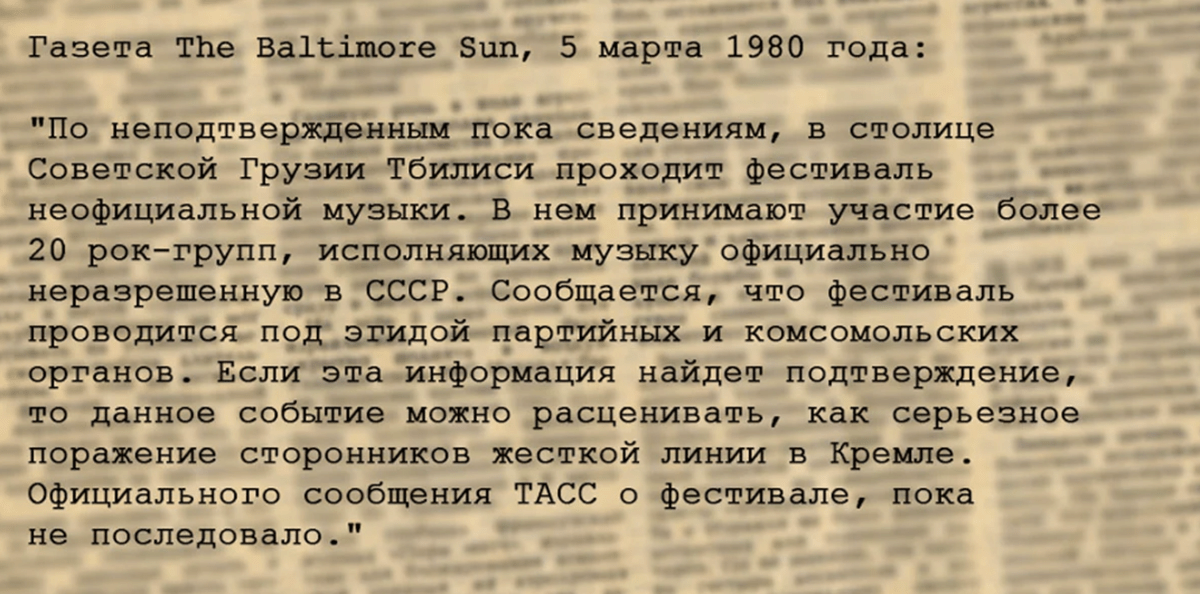
The festival owes its realisation to three friends: Artemy Troitsky - a music critic, musician Alexander Lipnitsky and an employee of the Philharmonic Hall - Gayoz Kandelaki. The idea to organise a large-scale rock festival visited the friends on an autumn evening in 1979, in a Moscow restaurant.
How they realised an unthinkable idea in Soviet times is still a mystery. Mystically, they managed to persuade party officials and managers to agree to hold a full-scale festival of "underground" rock 'n' roll at that time.
Many years have passed, but some people are still convinced: Georgia allowed itself such familiarity, because it always thought more relaxed than other republics of the USSR.
This relaxation caused a lot of prejudice among rockers themselves. Many people perceived it as a cunning move by the authorities, with the help of which they could "expose" and put all freethinkers on the unspoken register.
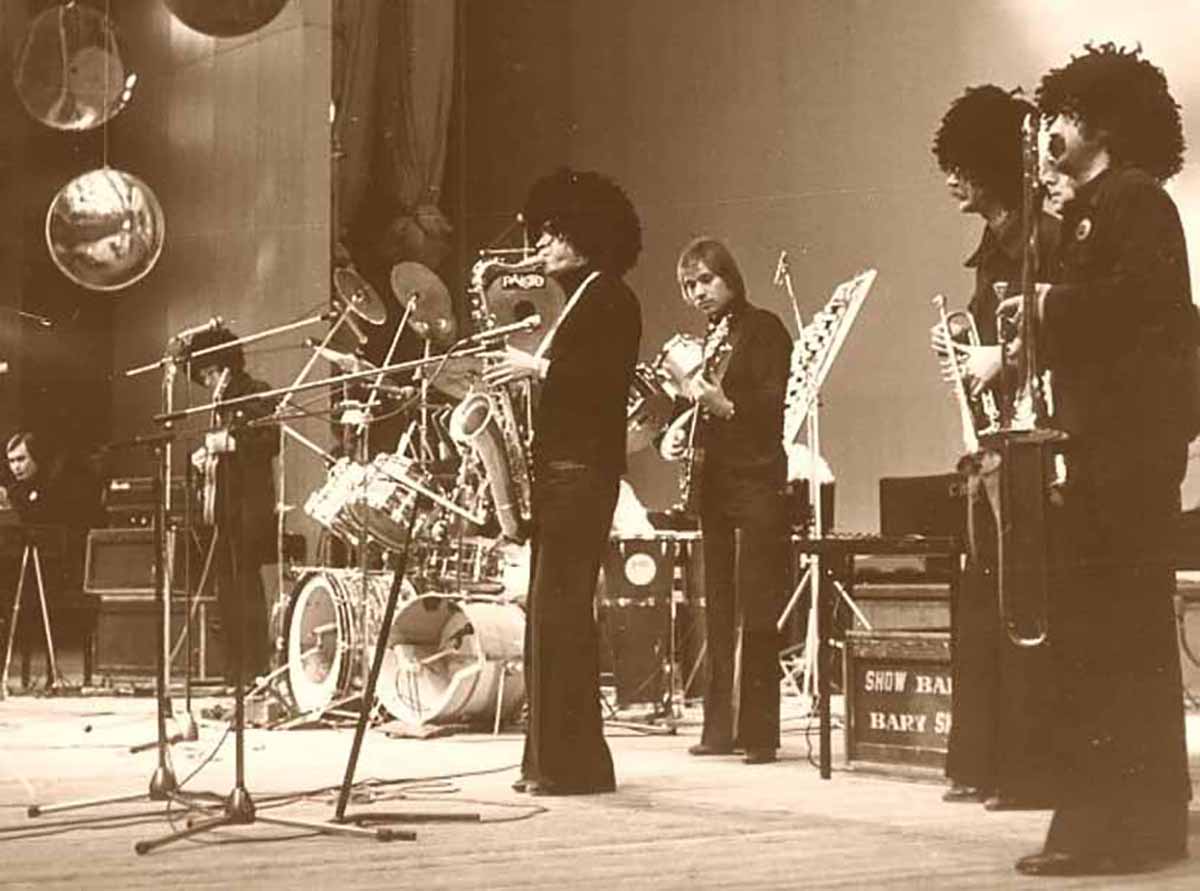
In any case, the organisation of the festival went "smoothly". Troitsky put it on his shoulders to find rock musicians to participate, while Lipnitsky was in charge of publicity. Thanks to his connections, he managed to attract the attention of the general public through the Soviet press.
As for Kandelaki, as a musician, he had the right leads for the extravaganza. In addition to him, comrades from the Composers' Union contributed to the event from Georgia. It is worth noting the active participation of Giya Kancheli, a member of the Tbilisi Philharmonic and the Central Committee of the Komsomol.
The rock festival was a valuable gift of fate for Soviet bands playing in this genre. In those days, full-scale concerts were a curiosity for the country. All the bands were detached from the audience and listeners, occasionally playing in local Houses of Culture and in flats. Musicians could only dream of touring to other cities. The opportunity to perform in the large Tbilisi Philharmonic Hall in front of a countless audience was received by the budding rock stars of the Soviet Union with enthusiasm. At the same time, the guys were not worried about rivalry. The festival meant for them something more than a musical competition. It became a lucky ticket, allowing them to show their rock skills in front of the audience. They finally had a chance to make a loud statement in the USSR!
Bands at the festival
Andrey Makarevich (Mashina Vremeni) about the festival "Tbilisi-80. Spring Rhythms":
"It was the first festival of such a large scale in our practice. It lasted not 2 or 3, but 8 days! There were many bands performing, about two dozen. The word "rock" was forbidden, so they replaced it in the name with the word "youth" - "festival of youth music". But it was obvious that it was just a screen. In fact, everyone realised that it was pure rock'n'roll".
The organisers had a clear goal: to discover new original musical talents in the Soviet Union. And the jury's verdict had a significant impact on the future fate of the participants.
The performance of the band "Autograph" became the third for the collective, allowing it to shine on the general public. After that, the rock project was recognised and became popular on an all-Union scale. The guys were awarded second place and a special award for the song "Ireland. Ulster". The famous poetess Margarita Pushkina had a hand in the authorship of the recognised masterpiece. The festival opened the doors to success and recognition for the rock team. Co-operation with the major companies Melodiya and Roskonzert made the then unknown band famous.
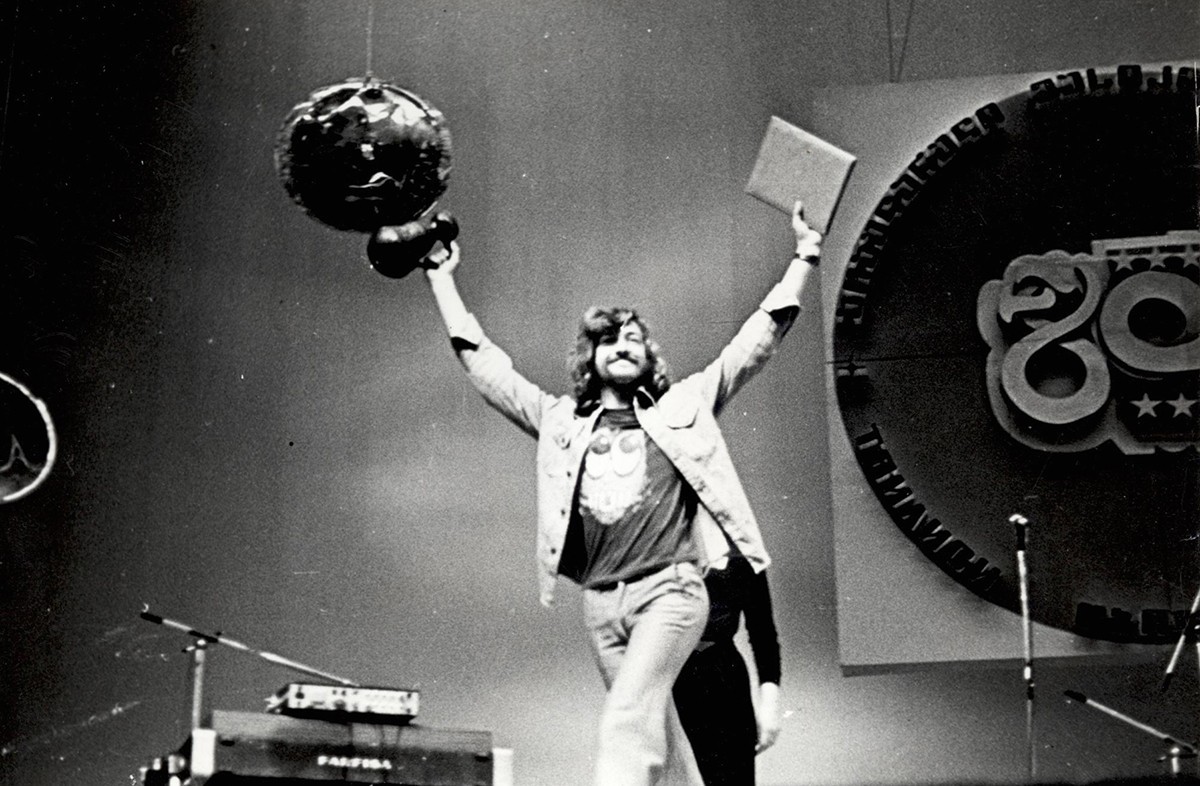
But the event left not only a good trace in the fate of the participants... As on any stage where there is a lot of rock'n'roll, the Philharmonic Hall was not without incidents.
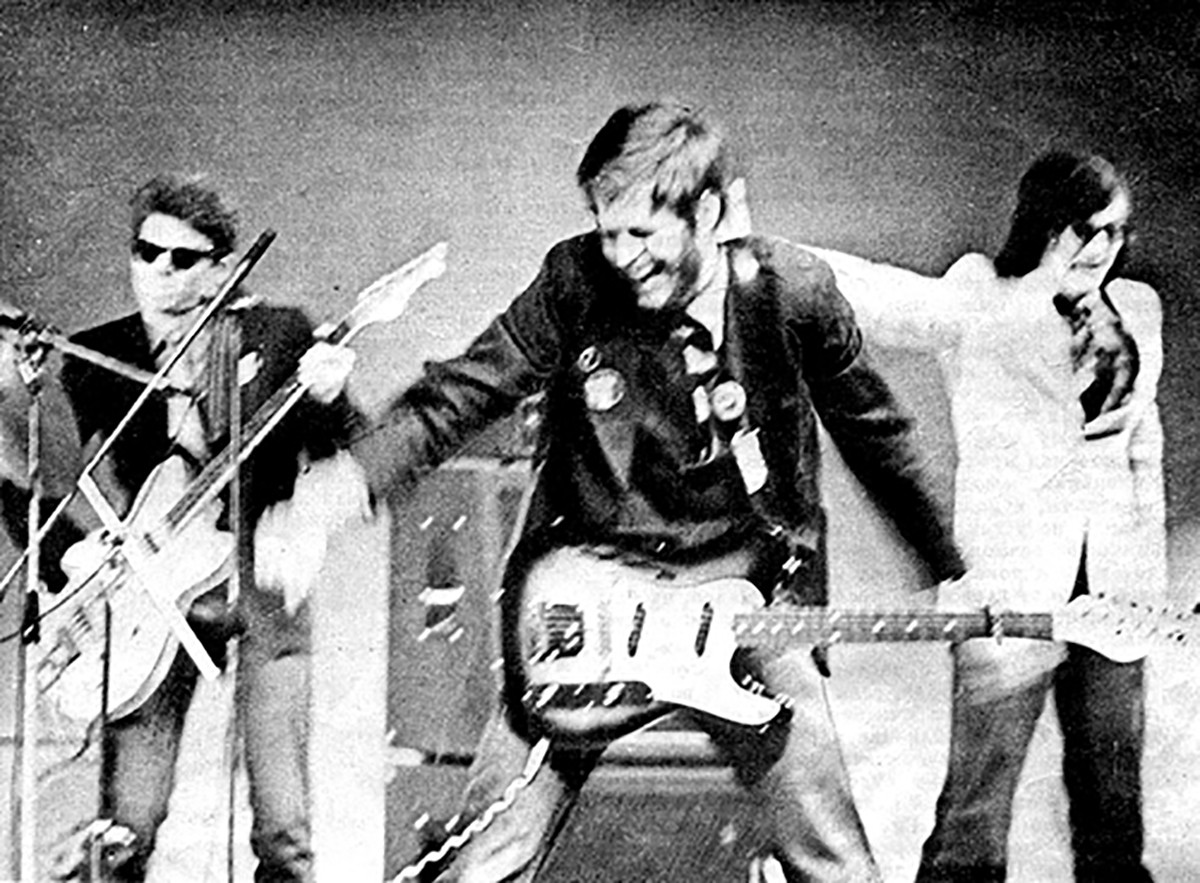
The band Akvarium, and in particular its guitarist Boris Grebenshchikov, distinguished themselves by their eccentricity. The story of the band's performance turned out to be quite amusing and, according to the jury, extremely obscene. The team chose to perform a rather rigid (from the point of view of the jury, Komsomol, Party and government) programme filled with ideologically wrong songs. The last straw was the behaviour of the participants during the performance....
This scandalous incident could not remain unrecorded in the history of Russian rock. Here's what Artemy Troitsky was able to tell about it in "BACK IN THE USSR":
"Compared to the relative decency of the rest of the band - or at least their aspirations to it - Aquarium were a true riot gang. Boris found a new use for the microphone stand as a guitar pick, and afterwards he lay down on the stage, clinging tightly to his Telecaster, continuing to bang the stand on the strings. All members of the jury stood up and left the hall as if to say with their looks: "We disclaim any responsibility for the performance of these rioters." Meanwhile, the band was in full ecstasy. Seva ran up to the lying leader and, placing the cello on top of him, began sawing the device with his bow. The bassoonist did not lag behind his friends, ominously running around this "picture", imitating the shooting of ugliness... The reaction of the hall was ambiguous: one half gave the musicians furious applause, the other half rewarded the band with indignant whistles".
After all that was seen and heard (perhaps not fully heard), the band was accused of all the deadly sins: promoting homosexuality, provocative behaviour and God knows what else. As it is easy to guess, the band was disqualified.
The excess also affected Boris Grebenshchikov's personal fate. When he returned home to Leningrad, he learnt two "amazing" news: he was expelled from the Komsomol and dismissed from the Research Institute of Sociology, where he was a junior researcher.
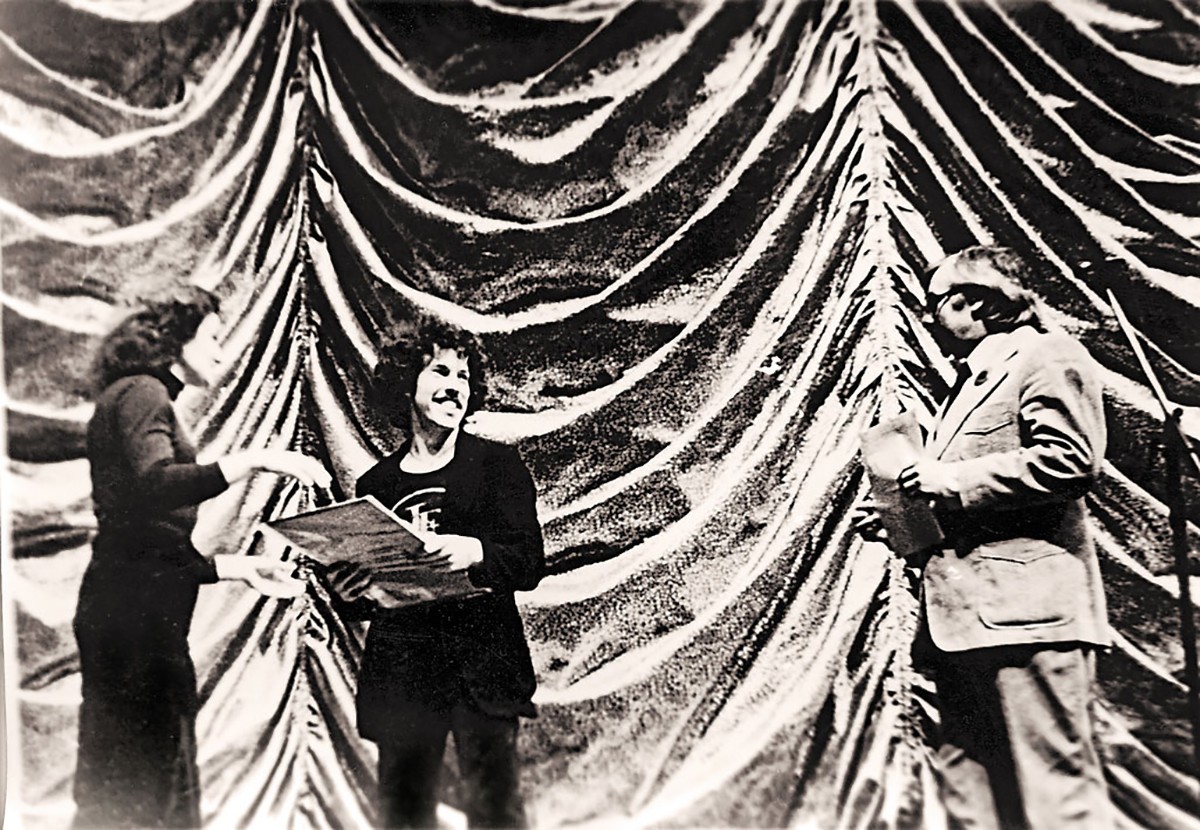
The festival also left a bad mark on Mashina Vremeni's reputation. A ban was imposed on the band - they were not allowed to perform in the Russian capital for six years! And this was despite the fact that the band took first place among other rock teams.
Winners of the Tbilisi rock festival "Spring Rhythms":
- First place - Mashina Vremeni with the songs "Crystal City" and "Snow" (by Andrei Makarevich) and Magnetic Band with the singles "Lady Blues" and "Troubadour on the Motorway" (lyrics by Gunnar Graps).
- Second place - Autograph with the single "Ireland. Ulster" (co-written by Alexander Sitkovetsky with Margarita Pushkina) and Gunesh, who performed the Turkmen folk song "Tuni River".
- Third place - Integral, Labyrinth and Tip-Top.
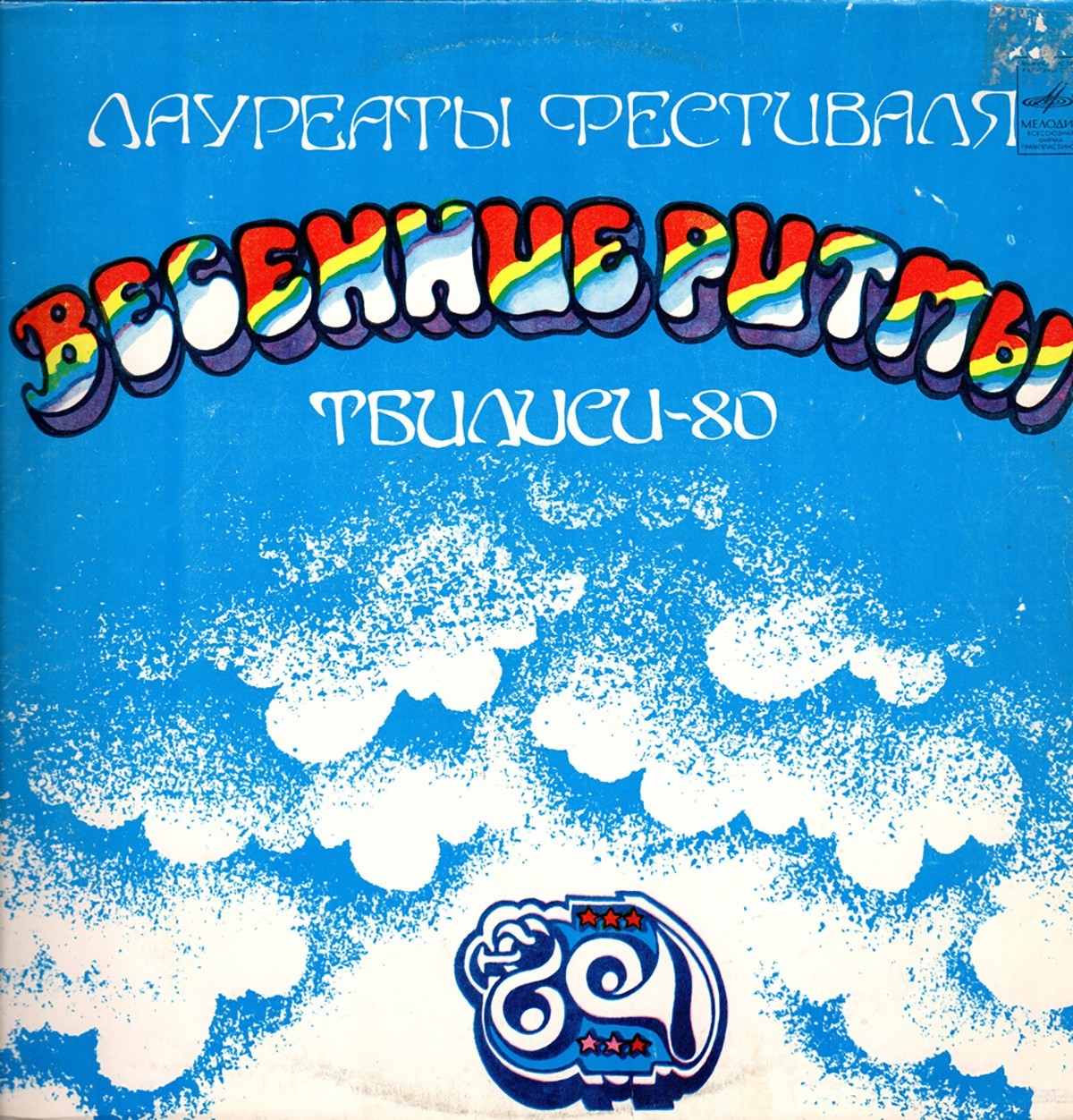
At the end of the event, Melodiya released a double compilation with the same name. It included the best songs, in the opinion of the panel of judges, performed during 8 days on stage. Foreign journalists were also present at the festival. Finnish film director Ria Karhela made a documentary film based on the materials they collected.



